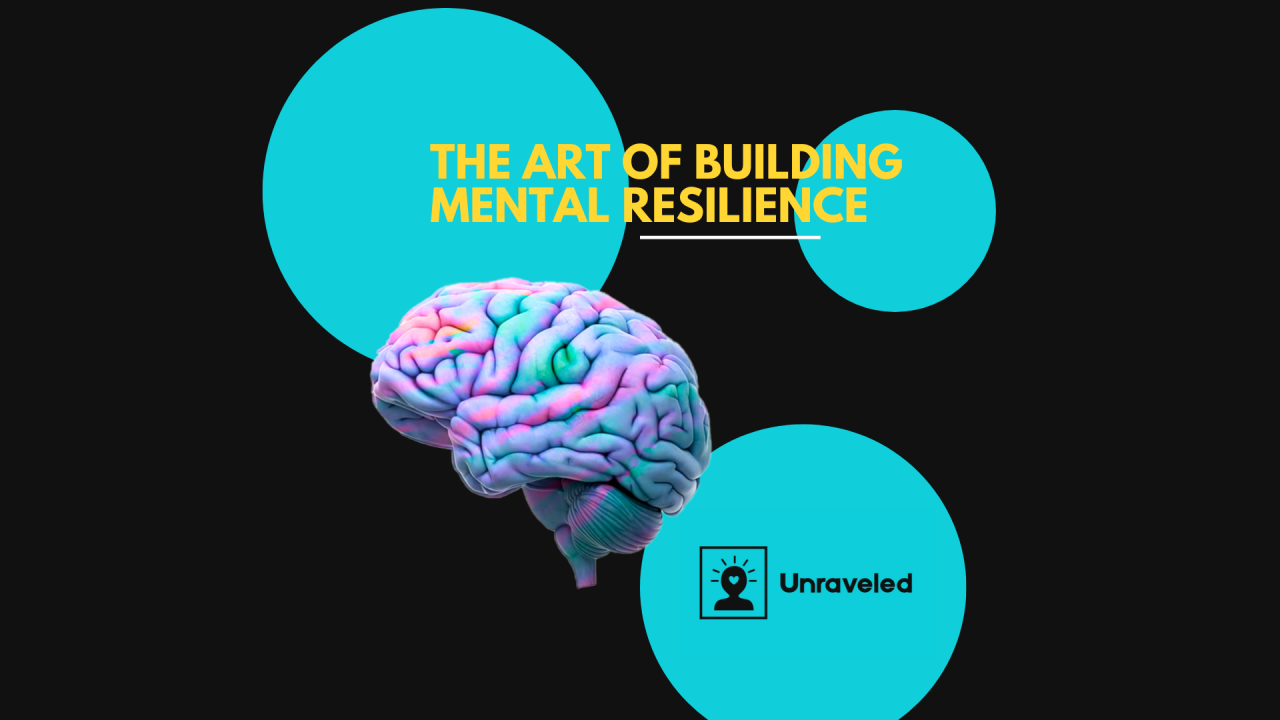Building Mental Resilience: Navigating Life’s Challenges
Life is filled with ups and downs, and developing mental resilience is crucial for facing challenges with strength and adaptability. In this article, we explore the concept of mental resilience and offer practical strategies to cultivate this essential trait.
Understanding Mental Resilience
Mental resilience is the ability to bounce back from adversity, cope with stress, and adapt to life’s changes. It involves developing a mindset that views challenges as opportunities for growth rather than insurmountable obstacles. Understanding and cultivating mental resilience is key to maintaining well-being in the face of life’s uncertainties.
Embracing a Positive Mindset
A positive mindset is foundational to mental resilience. Cultivate optimism by focusing on solutions rather than problems. Practice gratitude daily to shift your perspective toward the positive aspects of life. Embracing a hopeful outlook contributes significantly to building mental resilience.
Developing Healthy Coping Mechanisms
Effective coping mechanisms are essential for mental resilience. Instead of avoiding challenges, develop healthy ways to cope with stress. This may include mindfulness practices, physical exercise, journaling, or seeking support from friends and family. Building a toolkit of coping strategies enhances your ability to navigate difficulties.
Acceptance of Change and Uncertainty
Life is inherently unpredictable, and learning to accept change and uncertainty is integral to mental resilience. Embrace a mindset that acknowledges the impermanence of circumstances. By accepting that change is a constant, you can develop the flexibility needed to adapt to various situations.
Building Strong Social Connections
Social connections are a vital component of mental resilience. Nurture supportive relationships with friends, family, or a community. Strong social connections provide a network of support during challenging times, offering both emotional and practical assistance.
Setting Realistic Goals
Setting realistic goals contributes to a sense of accomplishment and reinforces mental resilience. Break larger tasks into smaller, manageable steps, and celebrate your achievements along the way. This incremental approach builds confidence and resilience over time.
Practicing Self-Compassion
Self-compassion is a powerful aspect of mental resilience. Treat yourself with the same kindness and understanding that you would offer to a friend facing challenges. Acknowledge your efforts and setbacks without self-judgment, fostering a compassionate attitude toward yourself.
Staying Present and Mindful
Mindfulness, or staying present in the moment, is a valuable skill for building mental resilience. Engage in activities that promote mindfulness, such as meditation or deep-breathing exercises. Being present allows you to respond to challenges with clarity and composure.
Seeking Professional Support When Needed
It’s important to recognize when professional support is necessary. Mental health professionals, including therapists and counselors, can provide guidance and tools for building mental resilience. Seeking support is a proactive step towards strengthening your mental well-being.
Resources for Building Mental Resilience
Explore resources and articles on building mental resilience at Studentals.net. Discover practical tips, expert advice, and personal stories that can inspire and guide you on your journey to greater mental resilience.
In conclusion, building mental resilience is an ongoing process that involves developing a positive mindset, adopting healthy coping mechanisms, and fostering strong social connections. By embracing change, setting realistic goals, and practicing self-compassion, individuals can navigate life’s challenges with strength and adaptability. Cultivate mental resilience as a powerful tool for personal growth and well-being.




